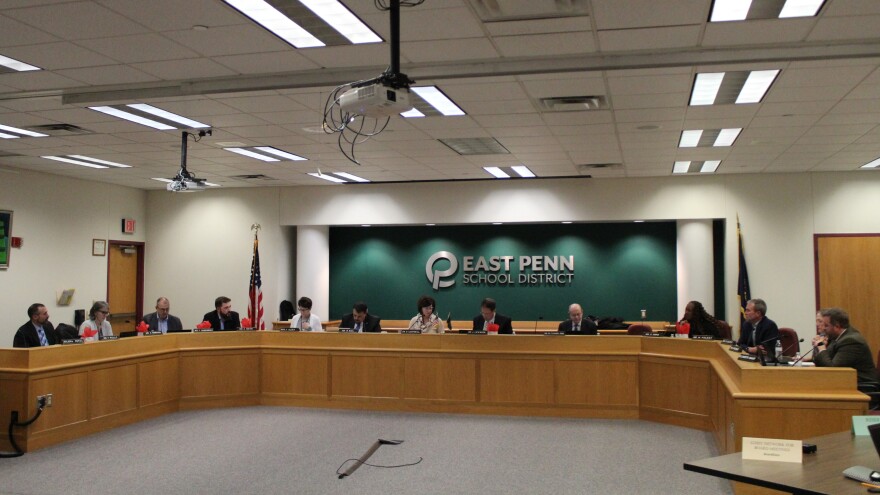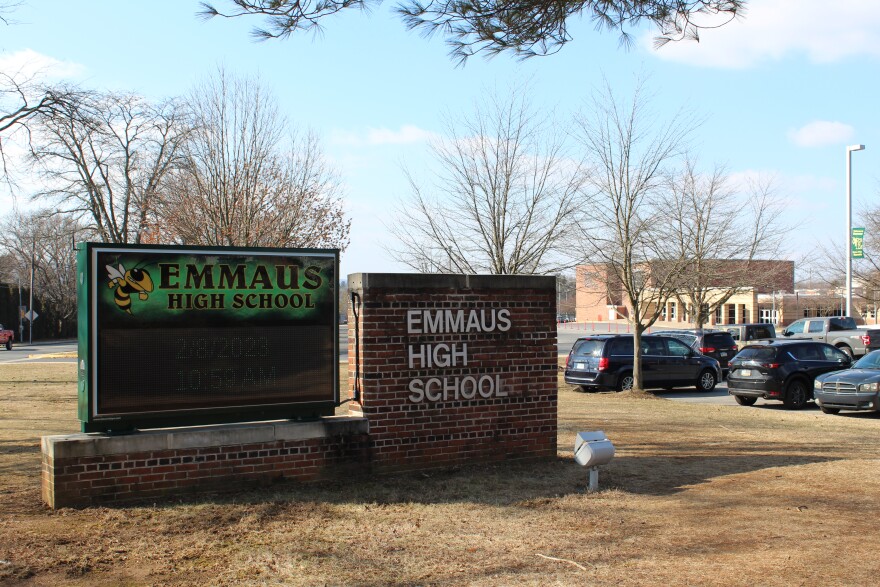EMMAUS, Pa. — Generative artificial intelligence has potentially introduced a brave new world — or opened a Pandora's box for the education world, and East Penn School District hopes to figure out how best to use it.
The district is introducing a new set of district policies governing the use and expectations regarding generative artificial intelligence.
Generative AI, the umbrella term for chatbot and media generation apps such as Open AI's ChatGPT, Microsoft's Copilot, and Google's Gemini, has been the hot-button speculative product in the tech world for the last year.
"I very much appreciate the fact that we're putting this policy in place. It can be very useful but also very dangerous at the same time."East Penn School Board member Jeffrey Jankowski
"A lot is changing," East Penn Assistant Superintendent Douglas Povilaitis said, noting there's no state requirement for such policy.
"Schools right now are moving forward with integrating some level of policy for various reasons, so that we can have the best opportunities for all of our students and prepare them for the future — while also making sure we're putting some guidelines in place."
According to the new policies, which did not face a final vote at Monday's School Board meeting, the district "recognizes the potential that [Generative AI] offers in enhancing educational opportunities, streamlining operations and preparing students for a future that demands adaptability, critical thinking and digital literacy.
"When incorporated and used in a responsible and ethical manner, Generative AI can support a dynamic working and learning experience."
The policy says a district list of authorized Generative AI tools and resources will be provided prior to implementation in the educational environment, and that approved tools can be used on district computers.
It states that the AI tools and resources are to be evaluated and authorized on an ongoing basis based on age-appropriateness, bias, privacy protections, accessibility standards and data security.
Any damage of district property related to generative AI will be the fault of the user.
New tool and new training for staff
The district's director of technology or designee will be responsible for developing specific student safety measures.
Staff will be provided professional development opportunities related to the landscape and safe and effective integration of Generative AI in the education space.
The policy also states the district encourages staff to explore Generative AI to potentially discover lesson plan ideas, create templates or assessments and to generate ideas for personalized student learning.
The policy directly states the district will prohibit the use of Generative AI in making personnel-related decisions, such as termination or promotion.
It also prohibits the use of Generative AI in making sole or final determinations on student assessments and evaluations.
Students
For students, training is to be provided regarding the capabilities, limitations and ethics of using the software, as well as how to critically analyze its content and the need to not disclose personally identifiable information to an AI software.
The use of the software for assignments and assessments is to only be allowed to the extent stated and outlined by the teacher for an individual assignment or course.
It states students will be notified in advance of any parameters for the use of AI in assignments.
Students and staff continue to be expected to cite original sources for quotations and direct information, whereas the AI software will be cited when the system's generated content is quoted, paraphrased or used in a student's work.
Users are expected to evaluate the content generated critically based on potential biases or inaccuracies.
The policy extends to all schoolwork, on or off school property.
Ups and downs with AI seen
Board member Jeffrey Jankowski praised the policy as "well done," but said it will have to be an evolving policy as the technology continues to evolve.
"I very much appreciate the fact that we're putting this policy in place," Jankowski said. "It can be very useful but also very dangerous at the same time."

Board member Adam Smith highlighted the opportunity for education initiatives to be tied to it, training parents with the critical skills needed to manage AI themselves as they help their children with homework.
"To have that kind of a tool in your hand to get it in five seconds is really important from a family standpoint, who want to support their kids," Smith said.
"If we can work at the same level too, that'd be fantastic."
Povilaitis said resources for families are in the works.
In jest at the shortcuts it can provide, board President Joshua Levinson asked Povilaitis, "Can we verify that ChatGPT was not used?"
That got a laughs from the officials present.
Debated benefit — and costs
The new AI tools have seen both hope in their labor-saving potential, and harsh criticism for their energy consumption and tendency to confidently state false information at times.
Also, there have been allegations of plagiarism in the "training" of the chat and image generation software by reviewing existing media.
A public release by Google of its AI "Gemini" at times yielded hilariously incorrect answers in Google search.
The district acknowledged the liabilities in the policy, stating that it does not imply endorsement or guarantee the accuracy of any information from the tools.
Penn State Lehigh Valley announcedin February a new course, "AI for Educators," that seeks to teach K-12 students about artificial intelligence as it relates to student learning, lesson planning and other aspects of education.
According to Pew Research, most teachers are unsure of the benefits or see harm in in the use of AI tools in K-12 education.
In a separate survey, 19% of teens that responded to the nonprofit and have heard of ChatGPT have used it to help with their schoolwork.
Many of those teens said it is acceptable to use to research new topics, while fewer agree that it is acceptable to use to solve math problems or write essays.


